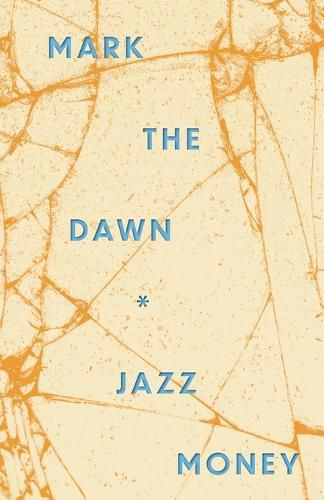Readings Newsletter
Become a Readings Member to make your shopping experience even easier.
Sign in or sign up for free!
You’re not far away from qualifying for FREE standard shipping within Australia
You’ve qualified for FREE standard shipping within Australia
The cart is loading…






A dazzling and impressive follow-up to Money's highly acclaimed debut, how to make a basket.
We gather marks. Our bodies, our stories, our histories and our world are made of an infinite amount of visible and invisible moments. We make marks to record, to remember, to honour, to protest. We mark time, for no matter how many times the sun sets, always it rises in a new dawn.
Jazz Money returns with her much anticipated new poetry collection to ask about all the ways we rise to a moment. mark the dawn is a celebration of community and gathering, while negotiating the legacies of intersecting histories as a queer First Nations person. These poems sing out with love declaring that, despite everything that has come before, we remain glorious, abundant, sexy, joyous and determined.
$9.00 standard shipping within Australia
FREE standard shipping within Australia for orders over $100.00
Express & International shipping calculated at checkout
A dazzling and impressive follow-up to Money's highly acclaimed debut, how to make a basket.
We gather marks. Our bodies, our stories, our histories and our world are made of an infinite amount of visible and invisible moments. We make marks to record, to remember, to honour, to protest. We mark time, for no matter how many times the sun sets, always it rises in a new dawn.
Jazz Money returns with her much anticipated new poetry collection to ask about all the ways we rise to a moment. mark the dawn is a celebration of community and gathering, while negotiating the legacies of intersecting histories as a queer First Nations person. These poems sing out with love declaring that, despite everything that has come before, we remain glorious, abundant, sexy, joyous and determined.
Jazz Money is not just a talented poet, but also an incredible artist and filmmaker. This is their second collection of poetry and it has already received the Quentin Bryce Award. mark the dawn explores with breathtaking precision ideas of non-colonial time, Country, queerness, love and responsibility. At times passionate and gentle, at times ferocious and unwavering, this collection celebrates the incredible hard work that marginalised people undertake in finding and re‑finding a sense of being, but also the profound joy and wonder that can be cultivated in this reimagining. Reading these poems feels like a gift.
Money has an exquisite artistry with words. They create beauty and intensity through repetition which they showcase from their opening poem ‘so too the sunrise’. Here, they deploy a gorgeous use of alliteration to evoke beautiful imagery, as in the line “into glory glowing dawn”. Throughout the collection, they choose words which seem to come out of nowhere, and yet perfectly capture a moment in their poems.
Money’s shape poems are particularly mesmerising, unfurling like a starry river across the pages. ‘strike the sparks’ speaks to the theft of First Nations history, and what is left out when white hands curate another culture in museums and galleries. The structure of the poems reflect this; their margins playing with presence and absence, words seemingly missing at the edges. You could read the rhythm as clipped by the line breaks or as one long smooth sentence. Money’s poems are unflinching, speaking of erasure and of the wrongness that has settled over Country. They speak of the way settlers’ gazes rewrite the story of the landscape.
I found this collection profoundly moving. I felt this poetry like a hook in my own body, especially in its forceful refusal of colonisation and the re‑storying of this continent. Therefore, more than anything else I can try to say about it, I urge you to read Jazz Money’s glorious collection for yourself.
See what the Readings’ team have to say on the blog, discover related events and podcast episodes.
Read beloved and emerging Australian poets like Judith Bishop, Jazz Money and Nam Le.
Delve into fiction, poetry and nonfiction from incredible First Nations Australians.
Rediscover classic poetry or find a new favourite from modern poets like Rupi Kaur, Maxine Beneba Clarke and Margaret Atwood.